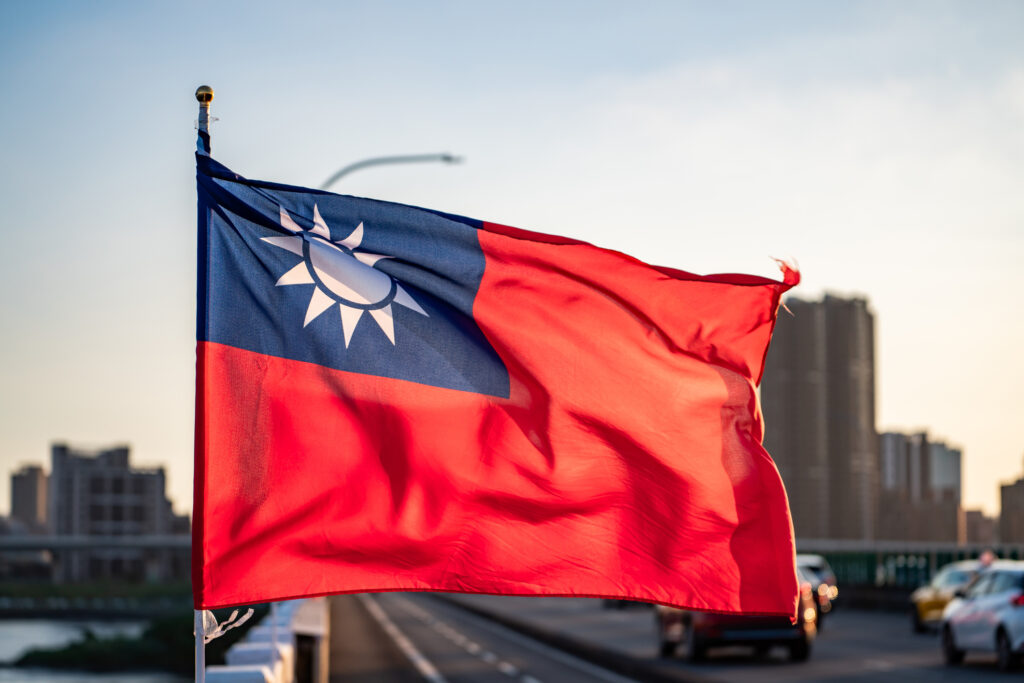Those who have had the privilege of attending a Taiwanese election rally don’t forget it in a hurry. Noisy, vibrant and jubilant, they are a far cry from the quiet doorstep canvassing that British voters are more familiar with. Amidst the blasting pop music, larger than life banners and crowds of cheering activists, Taiwan is exhibiting all the signs of a thriving and enthusiastic democracy.
As Taiwan goes to the polls this Saturday, its democratic freedoms are by no means taken for granted. Most voters are old enough to remember Taiwan’s first direct Presidential elections in 1996, which brought to an end the ‘White Terror’ period of political repression and martial law that preceded it. Memory of this dark period still spurs voters on. Even local elections consistently score above 65% turnout rates, putting the UK’s middling turnout figures to shame.
Today Taiwan’s democracy is once again under threat. This year’s Presidential and Legislative elections come at a time of rising geopolitical tensions. Under President Xi Jinping, Beijing has been increasingly vocal about its desire to absorb Taiwan within the People’s Republic of China. President Xi used his new year speech to describe the so-called ‘reunification’ of Taiwan to mainland China as a “historical inevitability”. While Xi insists his desire is to achieve this peacefully, he refuses to rule out the use of force and has ordered China’s military to be ready to take the island by 2027.
President Xi’s veiled threats are part of a broader effort by Beijing to influence, confuse and coerce Taiwanese voters. Local NGOs warn of a deluge of deep fakes, misinformation and conspiracy theories flooding online debates. Last year, Facebook and Instagram uncovered a Chinese government influence campaign involving more than 7,500 fake accounts across different platforms, with many targeted at Taiwan. Combined with near daily incursions of military aircraft across the Strait, the PRC government is waging open cognitive warfare on Taiwan’s voters.


Candidates vying for Taiwan’s Presidency have presented competing visions for how to navigate these turbulent waters. The frontrunner, Lai Ching-te of the ruling Democratic Progressive Party has painted himself as the continuity candidate. Vowing to follow in the steps of incumbent President Tsai Ing-wen, a Lai Presidency would cautiously challenge Beijing’s attempts to isolate Taiwan from the international stage while remaining ambiguous on questions of independence. Describing his approach as ‘pragmatic’, Lai will seek closer relationships with Taiwan’s allies while building up its defence capabilities to deter Chinese military aggression.
Lai’s main opponent is Hou Yu-ih of the Kuoming Tang (KMT). Hou’s vision of Taiwanese identity is rooted in its recent history. Rather than an independent island-state, the KMT sees Taiwan as the last bastion of the Republic of China, which once ruled the whole of China before fleeing to Taiwan as Mao Zedong’s Communists took power in 1949. The KMT still believes in a distant future for Taiwan as part of ‘one China’, but just not as part of the Chinese Communist Party ruled People’s Republic of China. Despite other differences, this gives Hou enough common ground with Beijing to talk feasibly about de-escalating cross-strait tensions and re-starting dialogues on business and trade.
The Chinese government has made no secret of its preference for Hou over Lai. Chinese officials have urged Taiwanese voters to ‘make the correct choice’ in the upcoming election. Yet regardless of who wins the Presidency, closer alignment with mainland China is an increasingly hard sell to the Taiwanese electorate. All the main candidates in the Presidential election, including Hou, have rejected the possibility of unification under Beijing’s proposed ‘one country, two systems’ model. One only needs to look at the crushing of Hong Kong’s fledgling democracy to know why. While many support Hou’s desire to de-escalate tensions with Beijing, his vision of ‘one China’ is increasingly anachronistic to younger generations of Taiwanese – many of whom have never set foot on the mainland.
The contradiction between President Xi’s plans for Taiwan and the desires of the Taiwanese people are starker than ever. This matters deeply for the UK. A military conflict or economic blockade around Taiwan would have a devastating impact on the global economy. Taiwan produces over 90% of the world’s most advanced semiconductors, powering everything from smartphones to cars. Nearly half of the world’s container ships pass through the Taiwan Strait each year, the main route for trade between East Asia and Europe. The resulting supply chain disruption would add to inflationary pressures and shock global markets already rocked by wars in Ukraine and Gaza. Bloomberg estimates the costs to the world economy of a full scale conflict across the Taiwan Strait at around $10 trillion, equal to about 10% of global GDP. The Taiwan Strait may be much further away than Ukraine, but UK consumers will still feel the cost of the conflict just as keenly.
All of this means that the UK cannot afford to turn a blind eye to Taiwan’s elections. The UK government should congratulate the new President, regardless of who wins. This will send an important signal affirming the right of Taiwanese people to determine their own future peacefully and free of coercion. Only by pushing back against Beijing’s attempts to isolate Taiwan can we hope to deter President Xi from escalating tensions further – and all of the cataclysmic humanitarian and economic fallout that would follow. Promoting Taiwan’s role on the international stage, bolstering its defence capabilities and deepening trade and cultural exchange must be at the forefront of the UK’s relations with the next Taiwanese government.
Politics.co.uk is the UK’s leading digital-only political website, providing comprehensive coverage of UK politics. Subscribe to our daily newsletter here.












